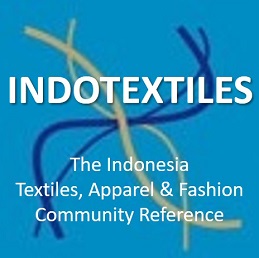In a world increasingly conscious of environmental concerns, the Bangladesh apparel industry finds itself at a pivotal crossroads. The European Commission's recent launch of the EU Strategy for Sustainable and Circular Textiles is setting new standards that will have a profound impact on both consumers and companies, both within and outside the EU.
This directive seeks to enhance transparency, sustainability, and circularity throughout the textile chain and serves as a clear signal that embracing eco-friendly and sustainable practices is no longer a choice but a necessity for the Bangladesh apparel industry.
The EU's strategy is rooted in the stark reality of environmental degradation caused by the textile industry. Shockingly, less than 1% of the world's textile waste is currently recycled into new clothing fibers. Worldwide, a truckload of textiles is discarded every single second, with Europe alone experiencing the fourth-highest environmental impact due to textile consumption, trailing only climate change, food, housing, and mobility.
The global textile sector is also the third-largest consumer of water and land and ranks fifth in primary raw material usage and greenhouse gas emissions, according to the European Commission's data.
To address this environmental crisis, the EU Commission's strategy aims to make textiles more durable, repairable, reusable, and recyclable. Several measures and regulations are planned to achieve this, and Bangladesh, as a major apparel exporter to the EU, must take heed.
One notable measure is the imposition of mandatory minimums for including recycled fibers in textiles. Through the Waste Framework Directive review in 2023, the EU is promoting the reuse and recycling of textile waste.
The EU also intends to introduce a Digital Product Passport for textiles, providing consumers with crucial information regarding the environmental impact of their purchases. This passport will detail aspects like energy use, recycled content, durability, repairability, and recyclability.
With sustainability and waste management at the core of the EU's strategy, European apparel brands and retailers are already adapting their practices. The focus on consumer empowerment also means strict controls against greenwashing.
Bangladesh, whose apparel exports to the EU account for about 60% of its total apparel exports, must respond effectively. While the country has made commendable strides in safety and sustainability, the EU's new strategies represent a significant challenge, necessitating comprehensive changes in sustainability practices.
In particular, the circularity concern looms large. The EU strategy emphasizes that the Bangladesh apparel industry should transition from linear to circular production. This transformation is pivotal, and the key question is whether Bangladesh is prepared for this change.
Research from Reverse Resources reveals that Bangladesh's export-oriented garment factories generate an estimated 400,000 tons of textile cutting waste, commonly referred to as 'jhut.' The majority of this pre-consumer waste is either exported to India or downcycled to low-value use cases. Unfortunately, Bangladesh has only a few recycling plants, insufficient to manage the vast amount of pre-consumer waste generated annually.
For Bangladesh to embrace circularity, it must close the textile loop within the country, which necessitates establishing more recycling centers. The informal and fragmented nature of local waste collection and distribution poses a challenge, requiring formalization to ensure the smooth supply of raw materials/textile waste to recycling plants.
Government intervention and industry commitment are essential to formalizing the 'jhut' market. Furthermore, incentivizing apparel manufacturers to practice reuse and recycling of textile waste can accelerate the momentum of circularity in the Bangladesh apparel industry.
It is undeniable that adopting a circular business model is vital for the apparel sector in Bangladesh. It is not only crucial for continued export to the EU but also imperative to prepare for the changes that will accompany LDC graduation. This transition to sustainability is no longer a choice but a mandate for Bangladesh's apparel industry.





